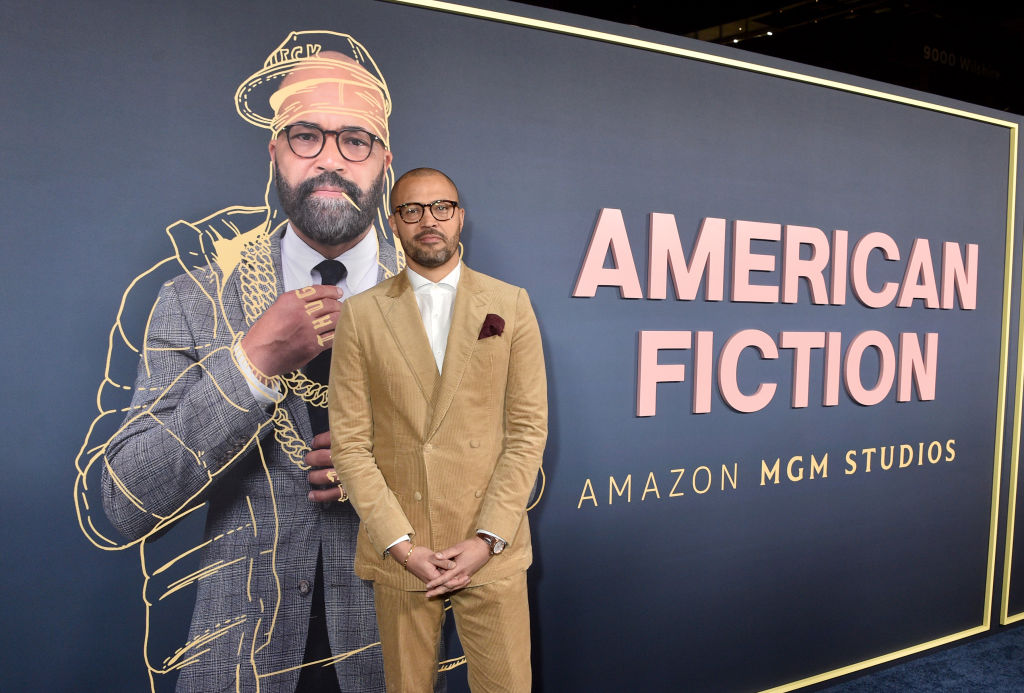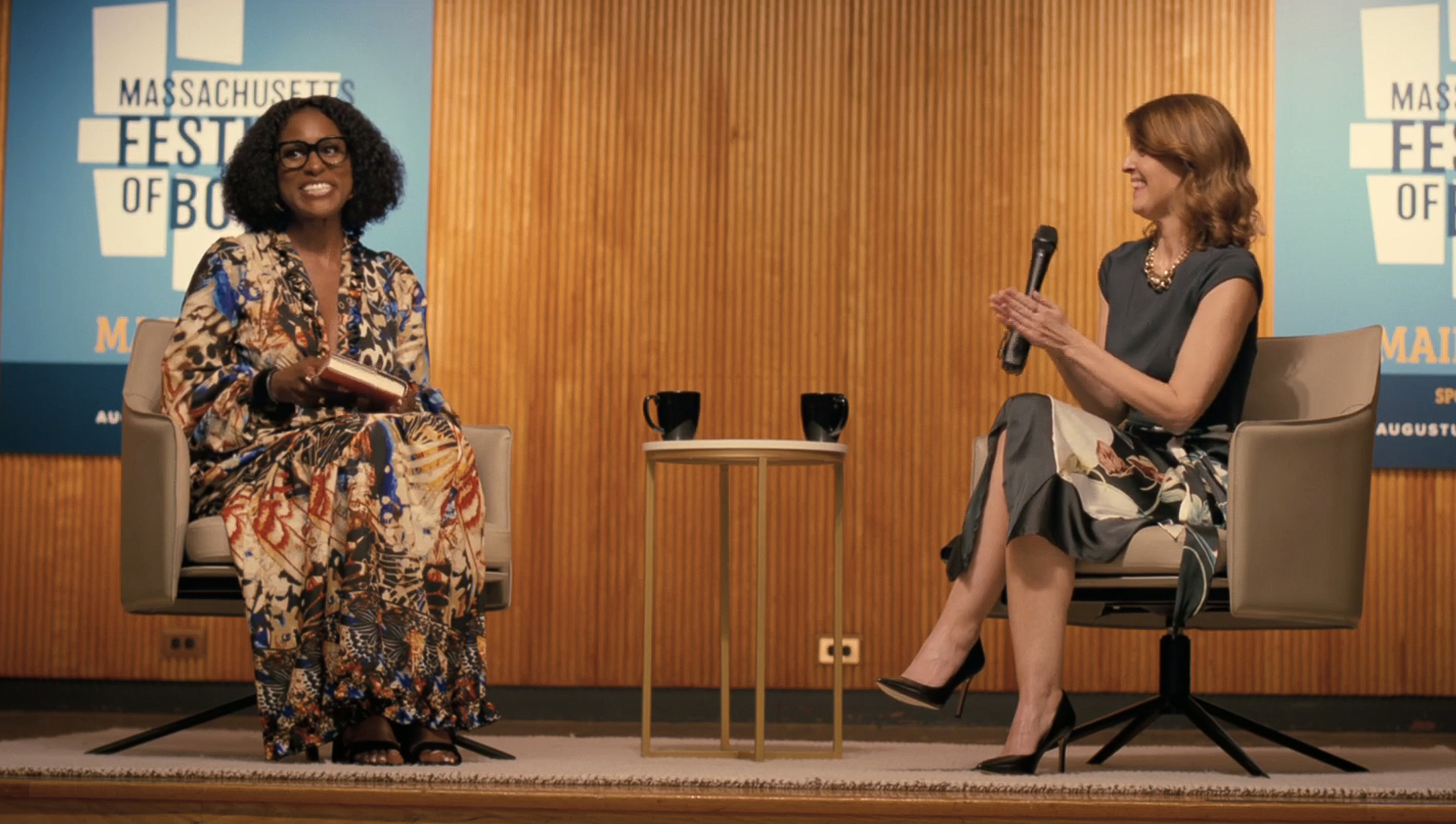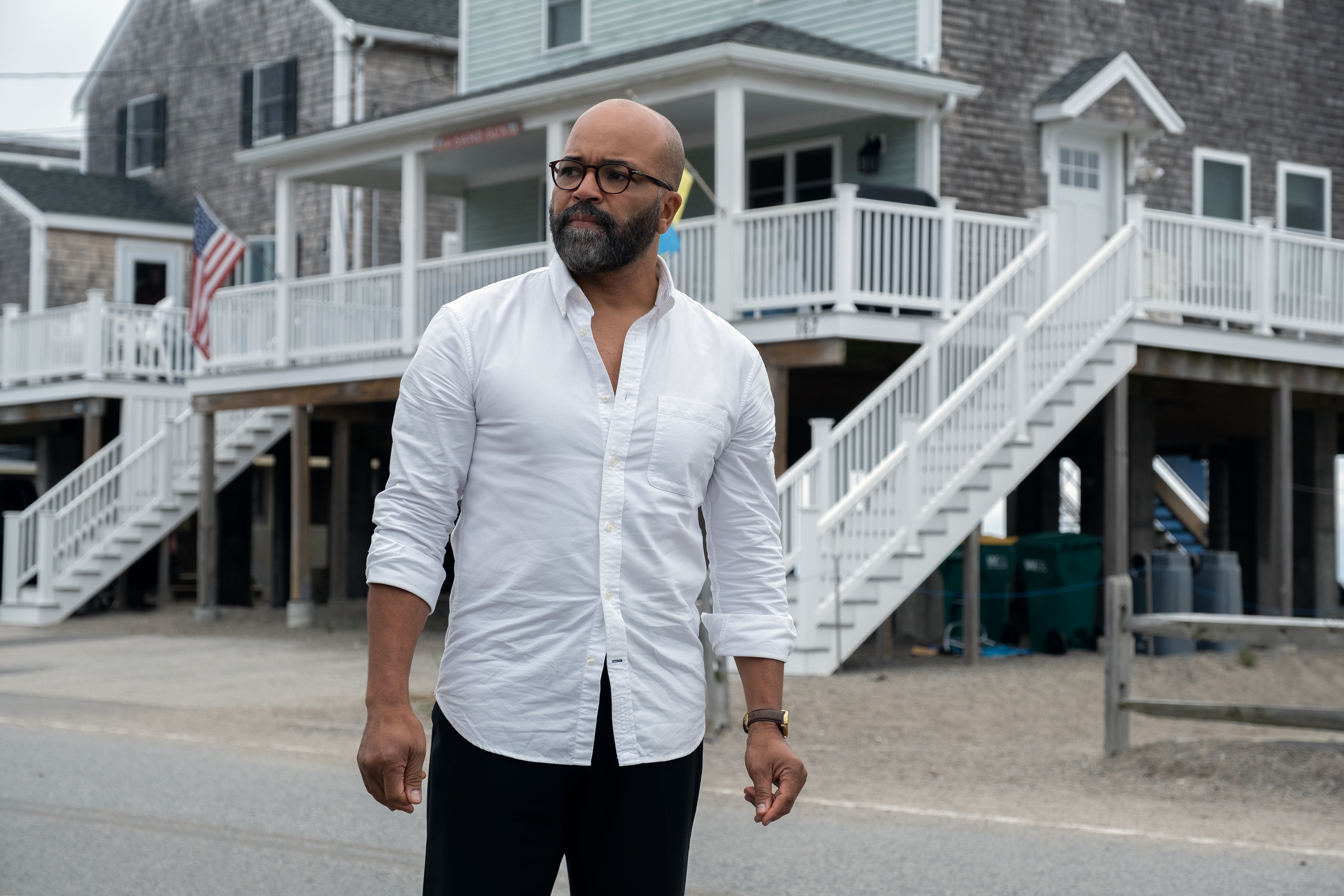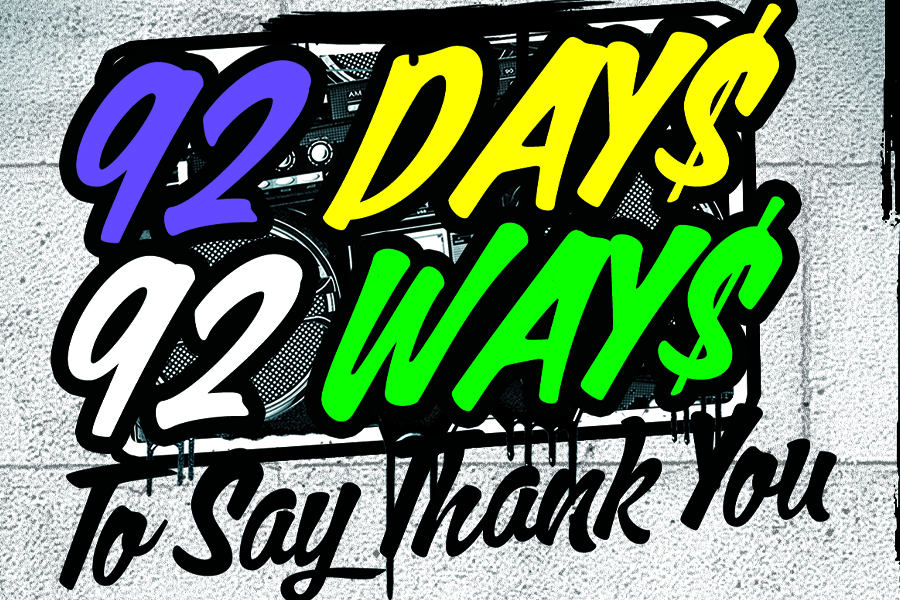‘American Fiction’ Director Cord Jefferson Addresses How Black Artists Are Pushed Into ‘Revolving Door Of Trauma And Misery’ When Creating
We’re finishing the fourth quarter super strong when it comes to entertainment, particularly films.

Source: Variety / Getty
AMERICAN FICTION, Cord Jefferson’s hilarious directorial debut, arrives in theaters everywhere Friday, December 22nd, and our Sr. Content Director Janeé Bolden had a chance to chat with him about the film — which confronts our culture’s obsession with reducing people to outrageous stereotypes.
Jeffrey Wright stars as Monk, a frustrated novelist who’s fed up with the establishment profiting from “Black” entertainment that relies on tired and offensive tropes. To prove his point, Monk uses a pen name to write an outlandish “Black” book of his own, a book that propels him to the heart of hypocrisy and the madness he claims to disdain.
We were fortunate to catch an early virtual Q&A with Cord Jefferson, who based the film on the novel Erasure by Percival Everett. After hearing Jefferson speak about how Everett’s novel resonated with him, one of our first questions to Jefferson, who has worked as a writer for successful TV shows like The Good Place, Watchmen, Master Of None, and Survivor’s Remorse, was about his own experiences in Hollywood.
“I’ve had a couple of instances in which executives will read scripts of mine and say in so many words, ‘We want you to make this character blacker,’” Jefferson told BOSSIP. “And I always respond to that with just like, ‘OK,’ because it’s never directly to me, it’s always through like emissaries and I always say, ‘Go back to them and ask them what Blacker means. Ask them what they mean by Blacker.’ Of course they never answer that question because they know that if they were trying to answer that question they would sound ridiculous and they make fools of themselves, even more so than they already have.”

Source: Amazon MGM Studios / Amazon MGM Studios
Jefferson also shared stories with us that he heard from colleagues, including a particularly dark one that included a racial slur.
“I had a friend who was working on a TV show once, and the showrunner turned to her in front of the entire all white staff,” Jefferson shared. “She’s a Black woman and the rest of the staff was white, and the showrunner turned to her on her first day on the job and said, ‘What do you think Blackie?’ In front of the entire staff. This is like 10 years ago. This was not 1952, this is like 2014 or 2015.”
Jefferson also acknowledged that these experiences aren’t isolated to writing for film and television. He recalled how his days as a journalist often meant constantly being assigned to cover Black trauma.
“Before I started working in TV and film, I was working in journalism and journalism was very much like, ‘Would you write about Mike Brown getting killed?’ ‘Would you write about Trayvon Martin getting killed?’ ‘Would you write about Breonna Taylor getting killed?’ Will you write about this racist thing that somebody said about President Obama?’” Jefferson told BOSSIP. “Constantly. This revolving door of trauma and misery and it’s like, is this all that we have to offer with our work as writers?”
These experiences reflect those of so many Black professionals, simply trying to make a living while pursuing their dreams. The bigger issue, Jefferson says, is that people outside of the culture often fail to recognize that they also have a part to play in confronting Black trauma.
“When they come to black people all the time and say like, ‘This is what you need to do,’ suggests that racism and the problems that come from racism are a Black issue,” Jefferson continued. “This is a two way street. Racism is just as much a white issue as it is a Black issue. Why are you not coming to white people and asking them to write about Mike Brown and Trayvon Martin, you know? They have a part to play in all of this too, it literally is a national issue. and treating it as if only Black people can talk about this is wrong. The cop that killed him was white right? So isn’t that just as applicable to white people’s lives as it is to our life? Why aren’t white people defined by these incidents the way that you try to define Black people by these incidents? That was a frustrating aspect of working in journalism, and I thought that I would get away from it when I started working in entertainment, because it’s fictional stories right? But still people are coming to me like, ‘Well why don’t you write about slaves?’”

Source: Amazon MGM Studios / Amazon MGM Studios
As you can imagine, American Fiction is every bit as thought-provoking as the questions Jefferson is asking. The film’s complexity also stretches beyond race, into class because Monk and his family reflect the very real fragility that many members of the Black upper middle class face.
“Black people have, for any number of reasons by design, not been able to achieve generational wealth in this country,” Jefferson responds when asked about the precarious nature of Monk and his family’s status. “That has been elusive for the vast majority of black people in this country. The thing that I wanted to portray was that essentially like there was one breadwinner. The father was successful, he had sort of like built up a successful practice, but you see how precarious things are once he’s gone… Fortunately they made enough to educate their children but also their children are going through it now too. See how quickly a divorce can totally alter your financial future? That is the problem with the difference between just general affluence and like real wealth. That precarity is very real.”
Jefferson even shared how his own financial security might have been in jeopardy had the WGA strike lasted longer this year.
“I’ve made a lot of money in my TV career and then I bought a house,” Jefferson shared. “I’ve earned far more money than anybody in my family ever has, but then we went on strike. I had an overall deal, which is how I really made all my money, and there is a real significant chance that I was going to lose my overall deal [had the strike lasted] and if that were to happen it would have all gone away. Not necessarily immediately, but if they said ‘Your overall deal’s gone, you’re not getting paid after this,’ I would have been scrambling to figure out how I was going to keep my house, which is the first real thing that I’ve ever owned.”

Source: Amazon MGM Studios / Amazon MGM Studios
Ironically, our conversation with Jefferson happened when the SAG-AFTRA strike was still in full swing, so we were unable to speak with his incredible cast, which, in addition to Jeffrey Wright, also includes Erica Alexander, Leslie Uggams, Tracee Ellis Ross, Issa Rae and Sterling K. Brown — who is quite the scene stealer as Monk’s gay brother, newly uncloseted and completely unhinged.
“Erika Alexander was such a huge part of my childhood,” Jefferson told BOSSIP. “I watched Living Single all the time. We went out to dinner a couple weeks ago and she was telling me something that I’d never heard before, which is that there were studies that showed that there was a spike in Black female lawyers when that show was on the air, because of the Maxine Shaw effect. Then all of a sudden it’s like Erika Alexander is not in movies anymore she’s not in TV shows anymore. This is a woman that is so, so, so talented, that is so, so, so beloved and had a huge impact on me when I was a kid. I loved giving her like a bigger role. I loved giving her the romantic lead in the film.”

Source: Amazon MGM Studios / Amazon MGM Studios
“I love that Leslie Uggams is 81 and still going,” Jefferson continued. “I love seeing her in there. I love Sterling K. Brown. I think that Sterling K. Brown has obviously gotten a bunch of television accolades, but I don’t think anybody has seen him like this before. This is a total departure for him. Tracee Ellis Ross, people think of her as ‘Oh she’s a sitcom actor.’ No, Tracee Ellis Ross has range… I just really want these people here because because they’re tremendous in the movie and I wish that they were at the forefront receiving these accolades because too frequently Black actors aren’t given that opportunity.”
- “Jeffrey is amazing,” Jefferson added. “The second time I ever saw Jeffrey Wright act was Basquiat it was the first time I ever saw him in the lead in anything because before that I saw him in Angels in America, not on Broadway but in the Mike Nichols adaptation of HBO and then I saw him as a lead in Basquiat and then I didn’t see him as a lead in anything ever after that, and it was like ‘Why?’ This guy’s amazing. Everybody agrees that he’s an amazing actor. Everybody agrees he’s one of the most talented actors in America, why is he not in the lead more often? Why is he never given that opportunity? I just love these people. I think they’re amazing. They were all amazing to work with and I want them to be receiving these flowers because they deserve them.”
We’re in total agreement. Go see American Fiction in theaters everywhere December 22!




